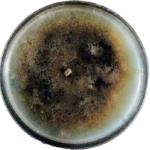It is estimated that there are more than 100,000 different dietary supplements on the market in North America.
inflammation
Congestive heart failure (CHF) is a pump problem, and most treatments serve to strengthen the pump, reduce the volume needed to be moved or alter the piping (the arteries and veins) to accommodate the pump's failures.
Open a random medicine cabinet, and there's a very good chance you'll see a bottle of ibuprofen.
The study by Agepha Pharma used by the FDA in its approval of this new indication for use ultimately involved 5478 patients between the ages of 35 and 82 with evidence of coronary artery disease upon imaging [1] and had been clinically stable for
Vascular surgeons have an intimate acquaintance with diabetes and its complications.
I’ve written in the past about anecdotal and case reports from “alternative or complementary” medicine arguing that these reports do not rise to what we would consider scientific trials.
Alternative medicine is like an "alternative fact." If it was real, then the word "alternative" wouldn't be necessary.









